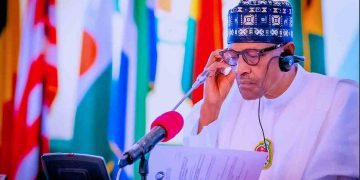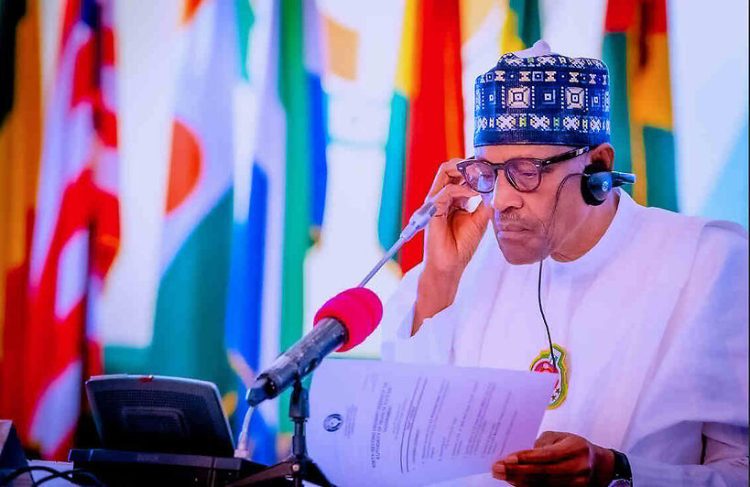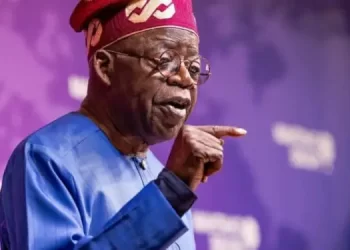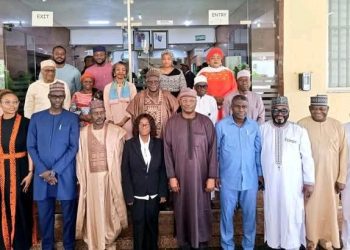As the late former President Muhammadu Buhari is laid to rest, tributes continue to pour in from across the world. While the nation mourns, many Nigerians are also reflecting on the significant and sometimes controversial; impacts of his presidency, particularly in the technology space.
During his eight-year rule (2015-2023), Buhari left an unmistakable mark on Nigeria’s tech ecosystem. His administration launched progressive digital initiatives but also imposed heavy-handed restrictions, making his tech legacy one of both innovation and contradiction.
From the rollout of broadband infrastructure and the Nigeria Startup Act to the infamous Twitter and crypto bans, Buhari’s policies both propelled and stifled the growth of the tech sector in equal measure.
Here’s a breakdown of the key policies that shaped Nigeria’s tech sector under Buhari:
1. Digital Economy Vision: Broadband, Data, and Access
Buhari’s administration laid out an ambitious digital blueprint through the National Digital Economy Policy and Strategy (NDEPS) 2020–2030 and the National Broadband Plan 2020–2025. The goal? Achieve 70% broadband penetration and internet speeds of 25 Mbps in urban areas, 10 Mbps in rural areas.
By 2023, mobile broadband coverage rose from 6% (2015) to 46%, driven by 4G expansion and the early adoption of 5G in six major cities. However, as of May 2025, broadband penetration stands at only 48.81%, far below the original 70% target.
2. Twitter Ban: Censorship over Dialogue
In June 2021, Buhari’s government indefinitely suspended Twitter after the platform deleted one of his tweets referencing Nigeria’s civil war. The ban, which lasted seven months, forced citizens and businesses to rely on VPNs, silencing digital voices and harming online commerce.
The Lagos Chamber of Commerce and Industry estimated that the ban cost Nigeria $26.1 billion, due to lost revenues from SMEs and the digital creator economy. ECOWAS later ruled the ban illegal, further highlighting its disruptive nature.
3. Cryptocurrency Crackdown
In February 2021, the Central Bank of Nigeria (CBN) prohibited financial institutions from facilitating cryptocurrency transactions. Accounts linked to crypto activity were closed, pushing the industry underground into peer-to-peer trading platforms.
Despite the clampdown, Nigeria became Africa’s crypto leader, handling $59 billion in transactions between July 2023 and June 2024 nearly half the continent’s total. The CBN eventually reversed the ban in December 2023, acknowledging the market’s resilience.
4. NIN-SIM Linkage Policy
To combat insecurity and improve identity verification, the Nigerian Communications Commission (NCC) mandated SIM cards be linked to National Identity Numbers (NINs) from December 2020.
After years of deadline extensions, the policy took full effect in September 2024. Over 60 million SIM cards were disconnected, dropping active mobile subscriptions from 219.6 million in March 2024 to 154.6 million by September.
While the policy was initially applauded as a tool against terrorism and fraud, the worsening security situation has led many to question its real-world impact.
5. Africa’s First CBDC: The eNaira
Nigeria became the first African country to launch a Central Bank Digital Currency (CBDC) with the eNaira in October 2021.
Unveiled at the State House by President Buhari, the eNaira was touted to drive financial inclusion, enhance remittances, and simplify government disbursements. However, due to poor user adoption, limited merchant acceptance, and technical glitches, the eNaira remains underutilized.
6. The Nigeria Startup Act: A Late but Landmark Law
Signed into law in October 2022, the Nigeria Startup Act was a landmark policy aimed at fostering innovation, attracting investment, and supporting early-stage tech companies.
It provided tax incentives, clearer regulatory frameworks, access to grants, and the establishment of bodies such as the National Council for Digital Innovation and Entrepreneurship. Though implementation began under President Tinubu, the law is considered one of Buhari’s most progressive tech legacies.
7. Indigenous-First Procurement & Data Governance
Through Executive Order 5 (2018), Buhari’s government prioritized local vendors in public procurement, giving Nigerian software developers a significant boost.
His administration also made strides in data governance through initiatives like:
- The National Data Protection Bureau (NDPB)
- The National Centre for AI & Robotics
- The National Policy on Second-Level Domain Names.
These steps signaled Nigeria’s growing commitment to data sovereignty, cybersecurity, and a knowledge-driven economy.
































